[Metropolitan Anthony Khrapovitskii On the Western Liturgical Rite] The Polish National Church
Last year, on August 8 1926, something occurred that could have a great significance for the future of Orthodoxy. Two Polish priests, Fr. Grushko and Fr. Petrushko entered the embrace of Orthodoxy while preserving the Western, Roman Rite within their parishes. For the first time since the division of the churches, the Orthodox Roman Mass has begun to be celebrated again. The rebirth of the Western Rite of Orthodox Christianity opens a great new possibility for those nations that have always belonged to the Western church. On this occasion, Metropolitan Anthony sent the following greeting to Metropolitan Dionysius: “From my soul I congratulate you on this work of God: you have embraced your brother. I have already made it clear in the Tserkovnyia Vedomosti that we should not forbid those who have been united with us to keep their own order of services, since even before the time of Photius, it had been different from that observed by us and the Greeks.”
The conversion of these priests opens the possibility of the establishment of a Polish national Orthodox Church, although all of Poland has never been Orthodox. The Czechs have taken the initiative in this regard, since they have already established their own Orthodox Church: they have their own Orthodox bishop in Prague and their own priests. A spontaneous movement can also be observed in the Carpatho-Russian regions among the Uniates, where whole villages are returning to the Orthodox faith of their fathers, having finally cast of the chains of slavery to Rome. For three hundred years the violently enforced yoke of Rome has weighed upon the Rusyns. But it only took the removal of the roguish government of the Austro-Hungarian monarchy to make the yoke of Rome fall off by itself. Archbishop Savvaty, a Russified Czech (he finished the Spiritual Seminary in Ufa and the Spiritual Academy in Kazan), has been placed at the head of the Czecho-Russian church. Over 200,000 Hungarian-Russians have already been united to Orthodoxy.
(Khleb Nebesnyi, No. 2 1927, pp 27-28)
Decree of the Council of Bishops of the Russian Orthodox Church Outside Russia 14/27 October 1953 on the acceptability of the Western liturgical traditions
- Provide for Diocese Bishops overseeing communities accepting Orthodoxy in whole groups, to permit the continued use of their western liturgical traditions. Individuals however, accepting Orthodoxy, enter the Holy Orthodox Church with the observance of the Eastern liturgical traditions.
- In any case, when Western liturgical traditions are preserved, the above mentioned communities must be familiar with both rites of the Holy Sacraments.
(Tserkovnaia Zhizn’. 1953 nos. 9-12 p.55. Translation by Mikhail Storozhev for Course 104: The Orthodox Church in the 20th and 21st Centuries, The Pastoral School of Chicago and Mid-America of The Russian Orthodox Church Outside of Russia, May 12, 2013. Zakonodatel’stvo Russkoi Pravoslavnoi Tserkvi Zagranitsei, 1921-2007, Dmitry P. Anashkin, ed. Moscow, St. Tikhon’s University for the Humanities, 2013)
Decree of the Council of Bishops of the Russian Orthodox Church Outside Russia of 29 Oct/11 Nov 1959 On the French Orthodox Community
Following prior discussions the following definitions are adopted:
To permit Archbishop John[1]St John (Maximovitch) of Shanghai and San. Francisco (+ 1966)., as the Diocesan Bishop of the Western European dioceses, according to his predisposition and judgment, – to accept under his canonical protection the French Orthodox Community[2]The community was formed in 1946 by Fr Eugraph Kovalevsky. As of 1993 it is the autocephalous Orthodox Church of France. and to charge him to organize their church life in accordance with the Holy Canons and Traditions of the Orthodox Church whist preserving the Western Rite for the above mentioned Community, subject to the following indispensable conditions:
- The community must adopt and observe the Orthodox Paschalion in accordance with the 7th Apostolic Canon and the 1st Canon of the Council of Antioch;
- The question of the Episcopal consecration of Archpriest Eugraph Kovalevsky [3]Kovalevsky, Eugraph Eugraphovich. Bishop Jean (1970). to remain open;
- Evening liturgies are recognized as inconsistent to the millennium-long practices of the Orthodox Church. As an exception however, evening liturgies may be permissible in the French Orthodox Group under the following conditions:
- Clergy, celebrating at the evening Liturgy, must not have celebrated a Liturgy that morning, and have withheld from food and drink that day prior to the Liturgy.
- Communicants at the Liturgy must likewise withhold from food and drink that day prior to Communion.
- In the course of the close study of the its life and conditions, the French Orthodox Community consents to the Synod of Bishops and Archbishop John to provide instruction and advice to the superiors of the Community[4]The French Orthodox parishes left ROCOR in 1966. This decree can be used in general to accept communities using the Western Rite into ROCOR..
(Tserkovnaia Zhizn. 1959, nos 11-12 p.203.Translation by Mikhail Storozhev for Course 104: The Orthodox Church in the 20th and 21st Centuries, The Pastoral School of Chicago and Mid-America of The Russian Orthodox Church Outside of Russia, May 12, 2013. The text is taken from Zakonodatel’stvo Russkoi Pravoslavnoi Tserkvi Zagranitsei, 1921-2007, Dmitry P. Anashkin, ed. Moscow, St. Tikhon’s University for the Humanities, 2013)
Decree of the Council of Bishops of the Russian Orthodox Church Outside Russia of 3/16 June 1964 On the French Orthodox Parishes
Upon receiving the reports on the life of the French Orthodox Parishes, covering their state of affairs from different angles, The Synod of Bishops welcomed the development of church life, and especially rejoiced that this year the parishes celebrated Pascha by the Orthodox Calendar, in such revealing complete unity with the Universal Church.
Nevertheless, the Synod of Bishops, prior to the consecration of Archpriest Eugraph Kovalevsky [5]Kovalevsky, Eugraph Eugraphovich. Bishop Jean (1970). to the Episcopate of the French Orthodox dioceses, needs to be assured of the following:
- That the observance of Pascha will be celebrated without exception according to the Orthodox calendar, as happened this year,
- That clergy, celebrating Evening Liturgies, will not celebrate one in the morning of the same day and will withhold from food and drink that day prior to celebrating the Liturgy.
- That Communicants at the Evening Liturgy will likewise fast all day until midnight, except under exceptional circumstances (for example – the grievously sick).
Apart from this, the Synod of Bishops must be assured that clergy will earnestly see to it that they do not commune Heterodox. In proof of this, the Orthodox Church of France must provide a pledge to fulfill the above obligations, signed by all the clergy and members of the Diocesan Council.
The Synod of Bishops gives His Eminence Archbishop John[6]St John (Maximovitch) of Shanghai and San. Francisco (+ 1966). and the Academic Committee of the Synod of Bishops the task to verify the authenticity of the Divine Liturgy according to the Gallican Rite, which is practiced by the Orthodox Church of France, and to provide a written report to the Synod of Bishops so that faithful can familiralise themselves with it. Further, before his consecration, Archpriest Eugraph Kovalevsky must document in writing his relation to the contemporary hierarchy of the Moscow Patriarchate, as required from all candidates to the episcopacy of the Church Abroad.
Following the fulfillment of all these conditions, His Eminence Archbishop John is tasked to report on this to the Synod of Bishops, and all Bishops, after which a resolution can be made about the possibility of the Fr E. Kovalevsky’s consecration[7]On a whole this repeats the Decree of the Council of Bishops On the French Orthodox Community in 1959..
(Tserkovnaia Zhizn’.1964 nos. 1-16 pp.12-13. Translation by Mikhail Storozhev for Course 104: The Orthodox Church in the 20th and 21st Centuries, The Pastoral School of Chicago and Mid-America of The Russian Orthodox Church Outside of Russia, May 12, 2013. The text is taken from Zakonodatel’stvo Russkoi Pravoslavnoi Tserkvi Zagranitsei, 1921-2007, Dmitry P. Anashkin, ed. Moscow, St. Tikhon’s University for the Humanities, 2013)
Decision of the Synod of Bishops Pertaining to the Western Rite
“Resolved: On the grounds of the approval of the presented Latin text of the Holy Liturgy of the Western Rite by the Most Holy Governing Synod in St. Petersburg in 1870, to accept this Latin text as basic for the translation in English and for use in the churches of the Western Rite. The use of any other text of the Western Liturgy is henceforth forbidden.” May the blessing of the Lord be with you.
Bishop Laurus,
Secretary to the Synod of Bishops, December 19/January 1, 1969-1970
(Orthodoxy, January-February 1970, p. 9)
Decree of the Council of Bishops of the Russian Orthodox Church Outside Russia of 5/18 September 1978. On the so-called Western Rite
Resolved: Western Rite in its current form was introduced after the separation of the West from Orthodoxy, and as such is not compatible with the liturgical life of the Orthodox Church, as developed over the course of numerous centuries. It does not represent her liturgical tradition. As such, it does not fulfill those being received into Orthodoxy, even when they become more fully accustomed to it; and it does not have success anywhere. Due to the foregoing, the Bishop’s Council does not see it possible to allow Western Rite in the Russian Church.
(Pravoslavnaia Rus’ 1978 no. 21 p.5. Translation by Mikhail Storozhev for Course 104: The Orthodox Church in the 20th and 21st Centuries, The Pastoral School of Chicago and Mid-America of The Russian Orthodox Church Outside of Russia, May 12, 2013. The text is taken from Zakonodatel’stvo Russkoi Pravoslavnoi Tserkvi Zagranitsei, 1921-2007, Dmitry P. Anashkin, ed. Moscow, St. Tikhon’s University for the Humanities, 2013)
New York. May 17, 2011. The Council of Bishops of the Russian Church Abroad Comes to a Close
At the proposal of the President of the Synod of Bishops, a Western Rite Vicariate was established. His Grace Bishop Jerome of Manhattan was appointed assistant to the First Hierarch of the Russian Church Abroad in ministering to these communities.
(http://www.synod.com/synod/eng2011/20110517_ensoborconclusion.html)
New York. July 12, 2013. An Extraordinary Session of the Synod of Bishops is Held
On Wednesday, July 10, 2013, an extraordinary session of the Synod of Bishops of the Russian Orthodox Church Outside of Russia was held, presided over by its First Hierarch, His Eminence Metropolitan Hilarion of Eastern America and New York. Participating in the meeting were permanent members of the Synod of Bishops: His Eminence Archbishop Mark of Berlin and Germany; His Eminence Archbishop Kyrill of San Francisco and Western America; His Eminence Archbishop Gabriel of Montreal and Canada, and His Grace Bishop Peter of Cleveland, Administrator of the Diocese of Chicago and Mid-America.
Deliberating on the matter of Bishop Jerome of Manhattan, the Synod of Bishops made a decision as follows:
“During a meeting of the Synod of Bishops on Wednesday, July 10, 2013, presided over by the First Hierarch of the Russian Church Abroad, A DECISION WAS MADE: on the activities of Bishop Jerome of Manhattan, Vicar of the President for the Administration of Western Rite Parishes.
After exhaustive deliberation, IT WAS DECREED:
-
- To halt the ordination of new clergymen for parishes adhering to the Western Rite.
-
- To censure Bishop Jerome for his willfulness in administering the parishes adhering to the Western Rite, and in performing various ecclesial services not approved by the Synod of Bishops, and for criticizing his brethren in letters to clergy and laity.
-
- To deny recognition of the ordination of a group of individuals by Bishop Jerome during a single divine service, and to regularize them following a thorough examination of the candidates.
-
- To release Bishop Jerome from all duties, including those of Vicar of the President in administering Western Rite parishes, designating him as retired without the right to serve in the Synodal Cathedral “of the Sign” in New York, or to perform ordinations or award clergymen, and designating his place of residence at St Vladimir Memorial Church of the 1000th Anniversary of the Baptism of Russia in Jackson, NJ.
-
- To bless Bishop Jerome to perform divine services within the confines of the Eastern American Diocese with the consent of its Ruling Bishop.
-
- To release Monk Anthony (Bondi) from all of his administrative duties and from the spiritual ministry to the Vicariate of Western Rite Parishes.
-
- To establish a commission to examine the means of integrating clergymen and communities of the Western Rite into the liturgical life of the Russian Orthodox Church, consisting of: Metropolitan Hilarion of Eastern America and New York, President; Bishop George of Mayfield, Vicar of the Eastern American Diocese; Protopriest David Straut of the Eastern American Diocese, and Protopriest Anthony Nelson of the Mid-American Diocese.
-
- To address an epistle to the clergymen and communities of the Western Rite regarding the need for them to adopt the order of divine services of the Eastern Orthodox Catholic Church, while preserving, when necessary, certain particularities of the Western Rite.
-
- To emphasize our adherence to the rules and traditions of the Eastern Orthodox Catholic Church in general and of the Russian Orthodox Church in particular.
- To deem this decree immediately valid and to submit it to the members of the Council of Bishops in the form of a questionnaire for confirmation.”
The meeting concluded with the singing of “It is Truly Meet.”
(http://www.synod.com/synod/eng2013/20130712_ensynodmeeting.html)
References
| ↵1 | St John (Maximovitch) of Shanghai and San. Francisco (+ 1966). |
|---|---|
| ↵2 | The community was formed in 1946 by Fr Eugraph Kovalevsky. As of 1993 it is the autocephalous Orthodox Church of France. |
| ↵3 | Kovalevsky, Eugraph Eugraphovich. Bishop Jean (1970). |
| ↵4 | The French Orthodox parishes left ROCOR in 1966. This decree can be used in general to accept communities using the Western Rite into ROCOR. |
| ↵5 | Kovalevsky, Eugraph Eugraphovich. Bishop Jean (1970). |
| ↵6 | St John (Maximovitch) of Shanghai and San. Francisco (+ 1966). |
| ↵7 | On a whole this repeats the Decree of the Council of Bishops On the French Orthodox Community in 1959. |

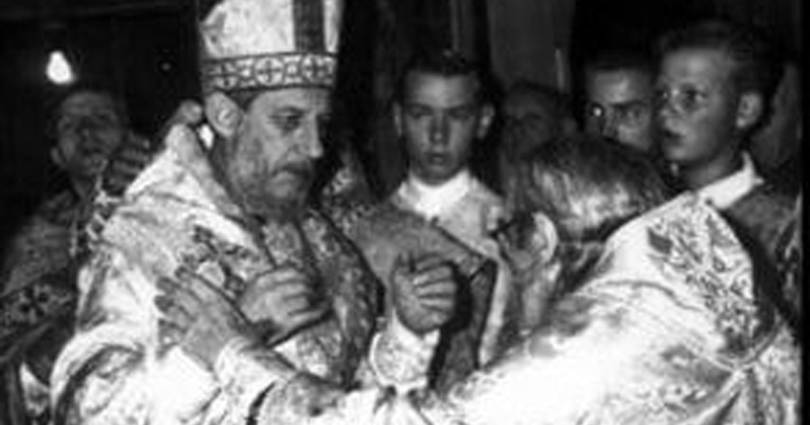




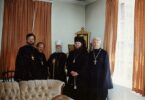
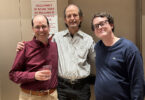
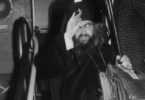
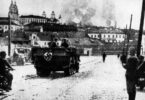
Thank you for posting this! What a fascinating (and back and forth!) history the Russian Orthodox Church Abroad has with the various forms of Western Orthodoxy.
Western Orthodoxy – Western Orthodoxy : Where I can find the *The Orthodox Catholic Review* of the pioneer of Western Orthodoxy Julian Joseph Overbeck (1821-1905), formaly a Roman-catholic priest and after his conversion to Orthodoxy a layman a worker for the restauration of True Orthodox in western countries ?
Ioan Maximovitch is no way a saint. He is the transgressor of décisions of the three Panorthodox Councils of the years 1583, 1587 and 1593. He has given permission of the churches of France and Netherlands to use the new calendar, the calendar of the fallen world. A such man is ipso facto extra ecclesiam.